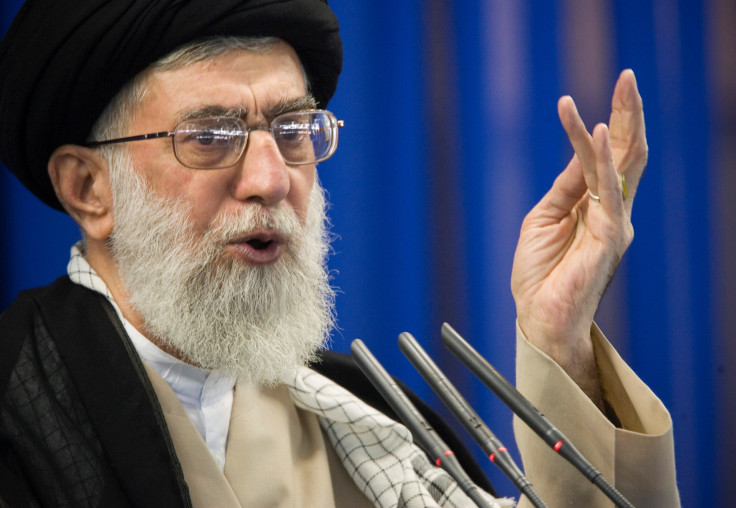Iranian Ayatollah: American Leaders 'Dishonest, Unreliable, Deceptive Backstabbers'

In a sign that Americans aren’t the only ones fretting over the outcome of the U.S. presidential election, Iranian Supreme Leader Ayatollah Ali Khamenei railed Wednesday against both candidates, which he said “display the reality of dwindling human values within the United States.”
In a speech urging Iran’s students to embrace a “resistance rationale” against the U.S., Khamenei, who a year earlier endorsed a landmark deal with the U.S. and five other world powers to scale down his country’s nuclear weapons development, called American diplomats “dishonest, unreliable, deceptive backstabbers.”
“The United States itself is facing a crisis—how can a crisis-stricken country resolve another country’s problems?” he said, adding that Republican nominee Donald Trump and Democratic nominee Hillary Clinton were “inadvertently exposing the realities and the catastrophes within the U.S.”
US presidential candidates’ statements in #debates shows collapse of humanitarian values in the United States.
— Khamenei.ir (@khamenei_ir) November 2, 2016
The comments came just over a week after the Center for American Progress—a progressive think tank founded by Clinton campaign head John Podesta and run by Neera Tanden, a member of Clinton’s transition team—held a panel on future Middle East diplomatic relations calling for a tougher stance on Iran and closer ties to Tehran’s Gulf State enemies.
One of the speakers, U.S. ambassador to the United Arab Emirates Yousef al-Otaiba, complained that the U.S. was too friendly to Tehran, despite lingering American sanctions against Iran.
Sunni-ruled Saudi Arabia is engaged in multiple proxy wars with Iran, a Shia government, including in Syria, where Tehran backs the government of Bashar al-Assad and Riyadh supports rebel groups—and possibly the Islamic State group. Both sides have also butted heads over the conflict in Yemen, in which Iranian-backed Houthi rebels have overthrown the Riyadh-backed government, and have subsequently faced American- and U.K.-funded Saudi bombing campaigns.
“I know there’s issues of international law here,” Mike Morell, a former Central Intelligence Agency director and current Clinton advisor, said of the need to intercept Iranian ships carrying weapons to the Houthis. “I would have no problem, from a policy perspective, of having U.S. Navy board those ships and if there’s weapons on them for the Houthis, turn those ships around and send those ships back to Iran. I think that’s the kind of action, tough action, that would get the attention of the Iranians and will get the attention of our friends in the region to say the Americans are now serious about helping us deal with this problem.”
Trump’s Iran position has been slightly more overt.
“With Iran, when they circle our beautiful destroyers with their little boats and they make gestures that our people, that they shouldn’t be allowed to make, they will be shot out of the water,” he said at a Florida rally in September.
Khamenei’s words came two days before the 37-year anniversary of the start of the Tehran hostage crisis, in which a group of student protesters overran the U.S. embassy in Tehran, holding dozens of Americans hostage for 444 days. The Supreme Leader, seeking to foster an attitude in his student audience similar to that of the young Iranians who took over the American embassy in 1979, praised the historic event Wednesday.
"The seizure of the spy den on Nov. 4, 1979 was in fact a natural reaction to the conspiracies and animosities of a greedy superpower,” Khamenei said, “who for many years considered Iran their property and looted the Iranian nation’s resources and wealth, but whose hands were cut off from our country once the Islamic Revolution gained victory."
© Copyright IBTimes 2024. All rights reserved.






















